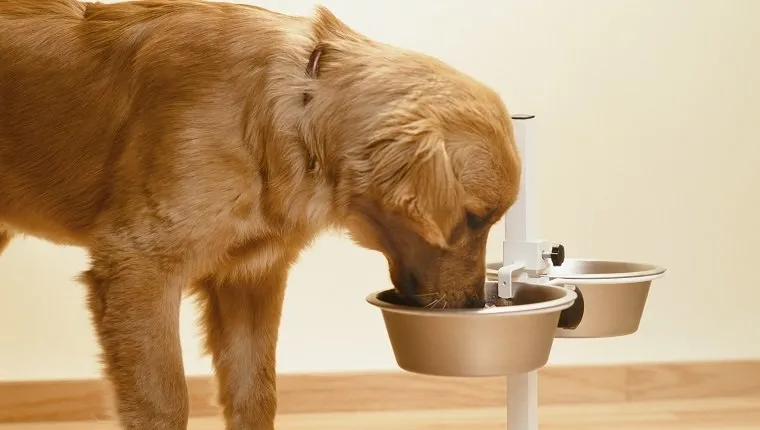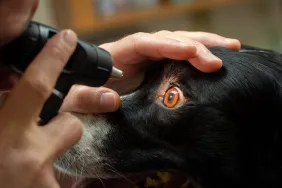Inflammatory bowel disease (IBD) in dogs is a condition that happens when inflammatory cells invade the stomach or intestines, causing chronic gastrointestinal symptoms like vomiting and diarrhea.
Inflammation results from an abnormal immune system response, though what triggers that response is not well understood when it comes to IBD in dogs. Some breeds may have a predisposition to the condition, and food allergies and bacteria hypersensitivity may also be factors.
IBD is not the same as inflammatory bowel syndrome (IBS), as IBS does not cause inflammation, ulcers, or damage to the bowels and is a less serious condition, though there are some similar symptoms.
If you see the signs of IBD in your dog, you must consult your veterinarian for a proper diagnosis and treatment plan. Here’s what you should know about the symptoms, causes, and treatments for IBD in dogs.
Symptoms Of Inflammatory Bowel Disease In Dogs

The symptoms of IBD in dogs are generally chronic and more severe than those of IBS. If your dog shows persistent signs of gastrointestinal distress, then they need veterinary attention.
Chronic inflammation can cause permanent damage to organs. Symptoms of IBD may come and go or vary in intensity.
Here are some of the symptoms that often appear in dogs with IBD:
- Chronic vomiting
- Long-term diarrhea
- Blood or mucus in stool
- Loss of appetite
- Weight loss
- Fatigue
- Gas
- Abdominal pain
- Loud noises from the abdominal region (grumbling or gurgling)
- Poor coat health
- Dehydration (due to vomiting or diarrhea)
Causes Of Inflammatory Bowel Disease In Dogs

The causes of IBD in dogs are not very well understood. Genetics, food allergies, parasites, hypersensitivity to bacteria, or immune system abnormalities are thought to be factors in the development of the condition.
Food allergens that may affect IBD include meat, additives, artificial coloring, preservatives, milk, and gluten.
Vets also suspect that certain breeds have a predisposition, including Basenjis, French Bulldogs, Irish Setters, and Lundehunds.
Middle-aged to older dogs are more prone to developing IBD, as well.
Treatments For Inflammatory Bowel Disease In Dogs

Treatment for IBD in dogs is focused on managing symptoms, as there is no “cure” for the condition, and even when it is under control, relapses are common.
In emergency cases where vomiting and diarrhea cause dehydration, vets may give dogs intravenous fluids until they stabilize. This is especially the case for dogs who are continuously vomiting, as giving fluid orally may result in further vomiting.
Vets usually manage IBD in dogs through a combination of dietary changes and medication. They often prescribe hypoallergenic diets.
Because inflammation is an immune system response, vets may also prescribe immunosuppressive drugs, along with antibiotics if they suspect bacterial hypersensitivity is a cause of IBD.
The right combination of drugs and dietary changes is somewhat based on trial and error, as IBD can have different causes, and it affects different dogs individually. Some dogs are eventually able to stop taking regular medication and only take it as needed.
The prognosis can range from excellent to poor based on the severity of the condition, so early treatment and following veterinary instructions are critical.
Does your dog suffer from IBD? How do you manage the condition? Let us know in the comments below!









